People
Affiliated Faculty
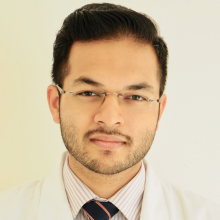
Mayank Bansal
Mayank is a vitreoretinal surgeon. He completed his residency in ophthalmology at the All India Institute of Medical Sciences and then spent a year at the University of Iowa in 2014 with Dr. Mahajan. Upon certification by the International Council of Ophthalmology, he was awarded a scholarship for fellowship in vitreoretinal surgery by the ICO at the University of California, Los Angeles. His research focuses on diabetic retinopathy, macular degeneration, complex vitreoretinal surgeries, and innovations in ophthalmology.
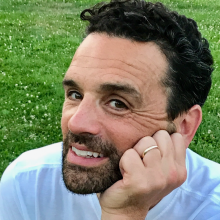
Alexander G. Bassuk M.D., Ph.D.
Alex has been a key collaborator with the Mahajan Lab since 2012. He is a pediatric neurologist at the University of Iowa whose laboratory focuses on the molecular biology, protein biochemistry, and genetic mechanisms in human diseases and in animal models. Along with a diverse cross-disciplinary team of researchers, he is pursuing a collaborative and innovative approach to use proteomics, fruit flies, zebrafish, and mice to rapidly translate basic science findings into clinical treatments. His investigational group is well poised to leverage novel in vivo techniques into new treatments for epilepsy and other human diseases.

Antoine Dufour Ph.D.
Antoine is an assistant professor and principal investigator of a lab at Calgary University in Calgary, Canada. His team works on understanding how proteolytic post-translational modifications lead to the activation or inactivation of immune responses in inflammatory diseases. They focus on proteases and their substrates on a cell, tissue, or organism-wide scale. Antoine has been collaborating with the Mahajan lab to teach trainees proteomic methods and to analyze eye disease biomarkers.
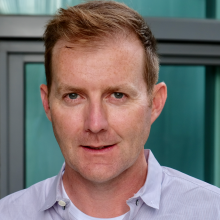
Mark Smith Ph.D.
Dr. Smith and Dr. Mahajan have been collaborating since 2018 on drug development for retinal disease. Dr. Smith joined Stanford ChEM-H in May 2013 as the Head of the Medicinal Chemistry Knowledge Center. He graduated with a Ph.D. from the University of Manchester Institute for Science and Technology, where his research focused on the application of Lewis acid catalyzed hetero Diels-Alder reactions to the synthesis of novel disaccharide structures. In 2000, Dr. Smith joined the research laboratory of Prof. David Crich at the University of Illinois at Chicago. Here his research focused on the generation of new reagents for the synthesis of beta-mannosides from thioglycosides. From 2002 to 2013, Dr. Smith worked as a medicinal chemist in Roche’s research facilities both in Palo Alto, CA and then Nutley, NJ, where he specialized in antiviral research. Smith and Mahajan co-mentor students and medicinal chemistry postdoctoral fellows developing small-molecule drugs for a variety of eye disease proteins.

Prithvi Mruthyunjaya M.D., M.H.S.
Dr. Mruthyunjaya has been a collaborator since 2017. He is an Associate Professor of Ophthalmology at Stanford University, member of the Vitreoretinal Surgery Service and Directs the Ocular Oncology Service at the Byers Eye Institute. He completed a fellowship in Vitreoretinal Surgery at Duke University and a second fellowship in Ocular Oncology at Moorfields Eye Hospital in London, England. Dr. Mruthyunjaya cares for patients with conditions related to cancer of the eye. With Dr. Mahajan, they built and direct the department’s surgical tissue biorepository. They are the recipients of a Cancer League grant to identify biomarkers of eye cancer, and they are working to identify much needed therapies for metastatic eye cancer.

Natalia Callaway M.D., M.S.
Natalia joined the lab in 2017. She completed her B.S. at Johns Hopkins University where she majored in behavioral biology and neuroscience. She attended medical school at Stanford University where she obtained a dual degree in medicine and a Master's in Epidemiology. She went on to complete her residency at Bascom Palmer Eye Institute. She returned to Stanford for her vitreoretinal surgical training. She has secured multiple training grants including the Vitreoretinal surgery foundation award and the NIH Clinical Scientist Training Award. Her research focus is on novel surgical methods and women’s issues in vitreoretinal disease. She splits her time between Stanford and Genetech where she leads clinical trials for reitnal disease.
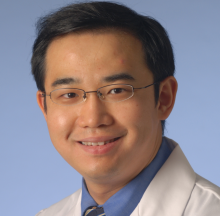
Yang Sun M.D., Ph.D.
Dr. Yang Sun is a clinician-scientist in glaucoma and an Associate Professor of Ophthalmology at Stanford University and Byers Eye Institute. Dr. Sun received his B.A. in Biophysics from Johns Hopkins University, followed by an M.D., Ph.D. from Washington University School of Medicine. He completed Ophthalmology residency at Stanford University and a prestigious Heed fellowship at the University of Michigan, Ann Arbor. He has been funded by the National Eye Institute, Veterans Administration, American Glaucoma Society, Lowe Syndrome Association, Knights Templar Eye Foundation, and Matilda Ziegler Foundation. Dr. Sun holds several U.S. patents on novel regulators of eye pressure and is the primary investigator on a number of glaucoma clinical trials.
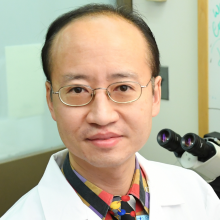
Stephen Tsang M.D., Ph.D.
Steve has been collaborating with the Mahajan Lab since 2008. He is a Professor of Ophthalmology and Pathology and Cell Biology at Columbia University. Steve is a pioneer in genome surgery in stem cells. His research focuses on reprogramming the metabolome as a therapy for patients with retinal degeneration. His expertise includes Genetic Disorders, Genetic Testing, Pediatric Genetics, Retinal Disorders, Eye Genetics, Clinical Genetics, Adult Genetics, Retinopathy, Marfan's Syndrome, and Macular Degeneration.
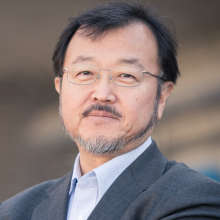
Soichi Wakatsuki Ph.D.
Dr. Wakatsuki and Dr. Mahajan have been collaborating since 2017. Dr. Wakatsuki is a Professor of Photon Science at the SLAC National Accelerator Laboratory and Professor of Structural Biology at Stanford’s School of Medicine. He received his B.S and M.S. degrees in Chemical Engineering from University of Tokyo, and his Ph.D. degree in Chemistry from Stanford University in 1991. After postdoctoral studies on time-resolved x-ray crystallography of enzyme reactions in Oxford (1990 to 1994), he moved to Grenoble, France in 1994 to work at the European Synchrotron Radiation Facility (ESRF) where he led the Joint Structural Biology Group. After positions in Japan, Soichi returned to Stanford in 2013. Wakatsuki and Mahajan co-mentor students and postdoctoral fellows working on the integrative and functional structural biology of eye disease proteins.
